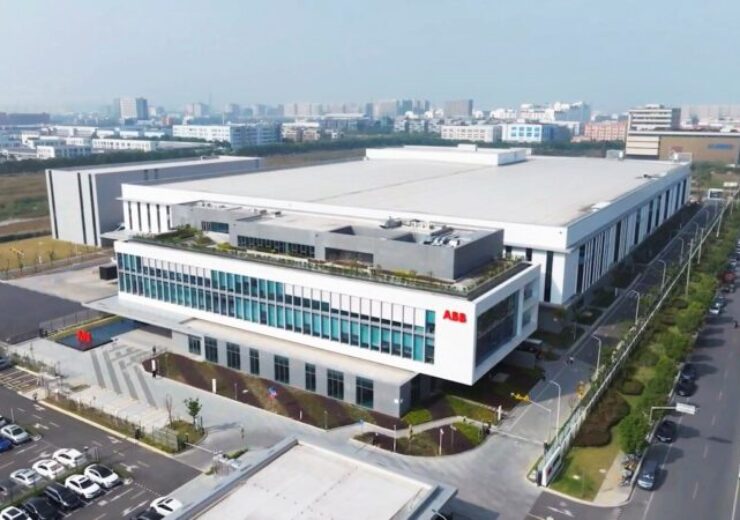The research and development centre of the site, which covers an area of 8,000m2, will develop new innovations in digitalisation, artificial intelligence, and software, including digital twin, machine vision autonomous mobility, and low-code programming software

ABB inaugurates a fully automated and flexible robotics mega factory in Shanghai. (Credit: ABB)
ABB, a Switzerland-based electrification and automation solutions firm, has officially inaugurated a fully automated and flexible robotics mega factory in Shanghai, China.
Located in Kangqiao and built with an investment of $150m, the production and research facility spans an area of 67,000m2.
The robotics factory is expected to bolster ABB’s robotics and automation foothold in China by deploying its digital and automation technologies to produce advanced robots.
According to the automation company, the robotics facility will combine the physical and digital worlds and develop a digital manufacturing ecosystem that will utilise virtual planning and production management systems.
It will help to maximise productivity and enhance performance through the collection and analysis of data.
The research and development (R&D) centre of the site, which covers an area of 8,000m2, will develop new innovations in digitalisation, artificial intelligence (AI), and software. These include digital twin, machine vision, autonomous mobility, and low-code programming software.
The developments are aimed at manufacturing more flexible, safer, intelligent, and easier to use robots.
ABB robotics and discrete automation president Sami Atiya said: “Building on three decades of success in China, the opening of our new mega factory is another milestone in helping our customers grow sustainably, address labor shortages and create high-value jobs in a new era of automation.
“Our innovative, automated and flexible factory plays a key role in our strategy of ‘in China, for China,’ strengthening our full value chain here.
“With over 90 percent of sales supported by our factory, the new facility will help our customers in China create more locally made products, solutions and services.”
The innovations made with partners and customers at the company’s new open lab are expected to open up new possibilities for flexible automation in sectors like logistics, healthcare, new energy vehicles (NEV), food and beverage.


